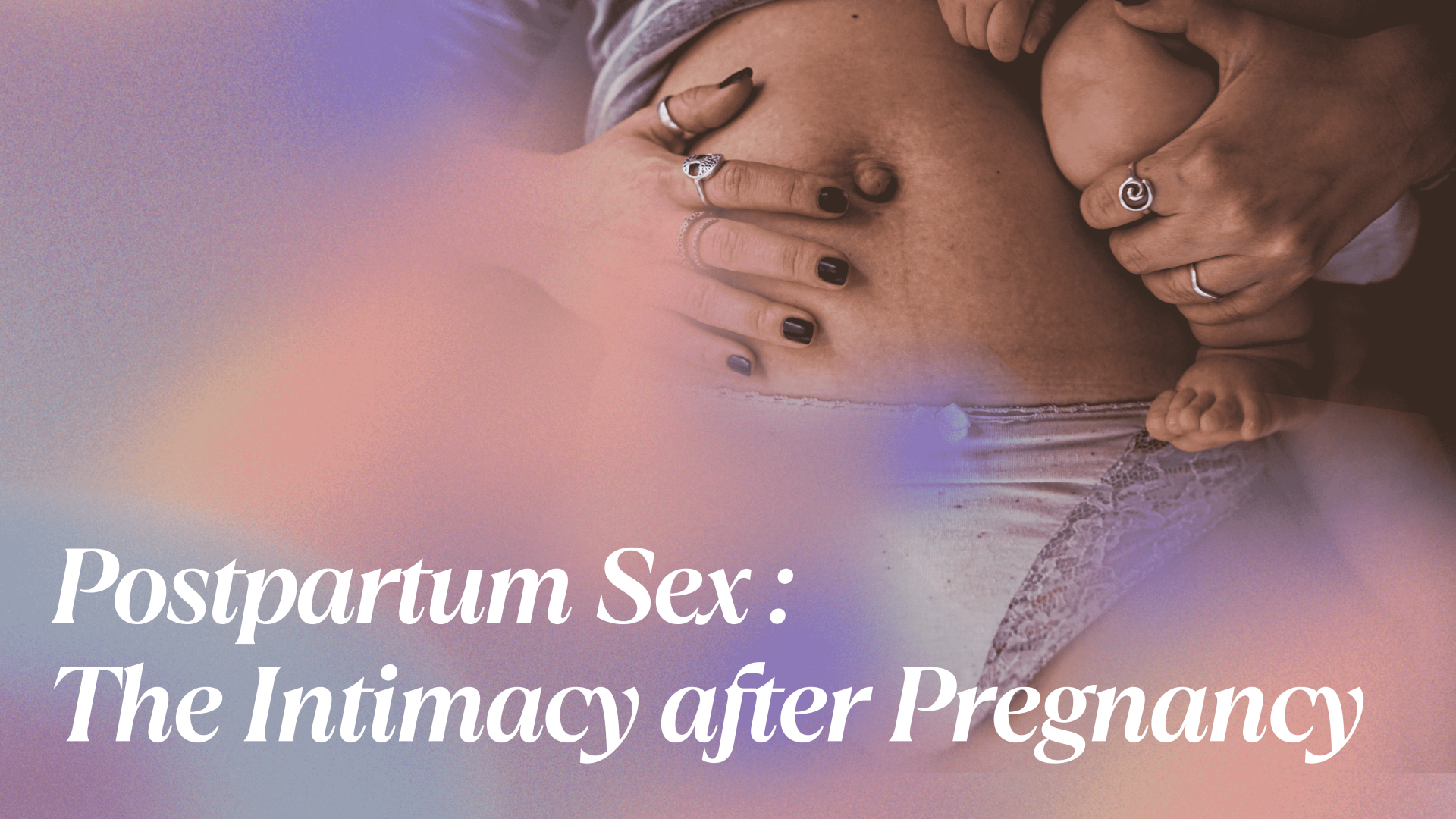Introduction
The initial months after welcoming a baby are undeniably challenging. Amidst adjusting to a new routine filled with feedings, diaper changes, and sleepless nights, there’s also the physical recovery from childbirth to contend with.
Understandably, thoughts of intimacy may be far from your mind during this time—and that’s perfectly normal. When you’re fully healed and feel ready to reconnect with your partner, there are gentle, personalized ways to foster intimacy and closeness together.
Addressing Fears and Concerns
Many women experience fears and concerns as they contemplate resuming intimacy after childbirth. These fears can stem from various factors, including physical discomfort or changes in their bodies, emotional vulnerability, and worries about the impact on their relationship with their partner.
The postpartum period is marked by heightened sensitivity and adjustment. Women may experience feelings of exhaustion, stress, or anxiety related to caring for their newborn, as well as mood swings due to hormonal fluctuations. These emotional challenges can impact a woman’s desire for intimacy and her ability to feel emotionally connected with her partner.
Furthermore, concerns about the impact on their relationship with their partner may weigh heavily on women’s minds. Bringing a new baby into the family can shift the dynamics of a couple’s relationship, and women may worry about how their changed roles as parents, along with the demands of caring for a newborn, will affect their connection with their partner.
How Long Do I Wait ?
Most healthcare providers typically advise waiting about six weeks after childbirth before resuming sexual activity. This timeframe typically allows for general healing and recovery from specific birth-related issues, such as vaginal tears or the surgical incisions to enlarge the vaginal opening and cesarean incisions.
However, it’s essential to recognize that everyone heals at their own pace, so it’s crucial to listen to your body’s nudgings. If you find that you’re not ready for sex after six weeks—whether due to physical discomfort or emotional readiness—be patient and kind to yourself.
Open communication with your partner about your feelings is the key while exploring other ways to bond can be just as meaningful.
How does it feel ?
Think about it, you just laboured and brought forth life, and its quiet normal for your body to rest, which it definitely deserves in oder to recover. However you might go through physical discomfort during your time of intimacy which include:
- Vaginal soreness or pain
- Vaginal dryness, especially if you’re breastfeeding
- Discharge
- Nipple soreness
- Backaches and joint pain
- Caesarean incision pain or numbness
1. Vaginal soreness or pain: After childbirth, the vaginal muscles and tissues may be tender or sore due to stretching and tearing during labor. This discomfort typically improves with time as the body heals.
2. Vaginal dryness, especially if you’re breastfeeding: Hormonal changes, particularly during breastfeeding, can lead to reduced vaginal lubrication, causing dryness and discomfort during intercourse. Using water-based lubricants can help deaden this issue.
3. Discharge: Postpartum discharge, known as lochia, is normal and consists of blood, mucus, and tissue from the uterus shedding after childbirth. This discharge may last for several weeks and gradually decrease in amount and color.
4. Nipple soreness: Breastfeeding can sometimes cause nipple soreness or pain, especially during the initial weeks as both mother and baby adjust to breastfeeding. Proper positioning and latch techniques can help soothe this discomfort.
5. Backaches and joint pain: The physical strain of pregnancy and labor can contribute to backaches and joint pain, which may persist postpartum. Gentle stretching, proper posture, and supportive footwear can help mitigate these discomforts.
6. Caesarean incision pain or numbness: Women who undergo cesarean deliveries may experience pain or numbness around the incision site as the area heals. Keeping the incision clean and dry, along with following healthcare provider recommendations for pain management, can aid in the healing process.
What Should I Do ?
Adjusting to postpartum intimacy can be challenging for new parents. From physical discomfort to hormonal changes, there are various factors to consider.
Here are some tips to help you ease into postpartum sex and enjoy intimacy with your partner:
1. Seek pain relief: Before engaging in sexual activity, consider emptying your bladder and taking over-the-counter pain medication to take the edge off any discomfort. If you experience burning afterward, applying ice wrapped in a towel to the area can provide relief.
2. Use lubricant: Vaginal dryness is common as your hormones readjust post-birth. Opt for a water-based lubricant to enhance moisture, avoiding oil-based options that can irritate sensitive tissue.
3. Increase foreplay: Give your body time to produce natural lubrication by prioritizing extended foreplay. Try mutual masturbation or other arousing activities to increase stimulation and comfort for both you and your partner.
4. Practice Kegel exercises: Strengthening pelvic muscles through Kegels can help with post-delivery issues like increased urination and aid in regaining strength and sensation in the vaginal area.
5. Make time for sex: With the demands of caring for a newborn, scheduling intimate moments with your partner is crucial. So ensure dedicated time for connection without feeling rushed or stressed.
6. Communicate with your partner: Embrace the changes in your sexual relationship post-pregnancy by openly discussing what feels good and what doesn’t. Be patient and understanding with each other, and remember that honest communication is key to a healthy and fulfilling sex life.
Conclusion
Navigating postpartum sex may have its challenges, but with patience, understanding, and open communication, you and your partner can enjoy intimacy and strengthen your bond as new parents.
Resources:





 No products in the cart.
No products in the cart.